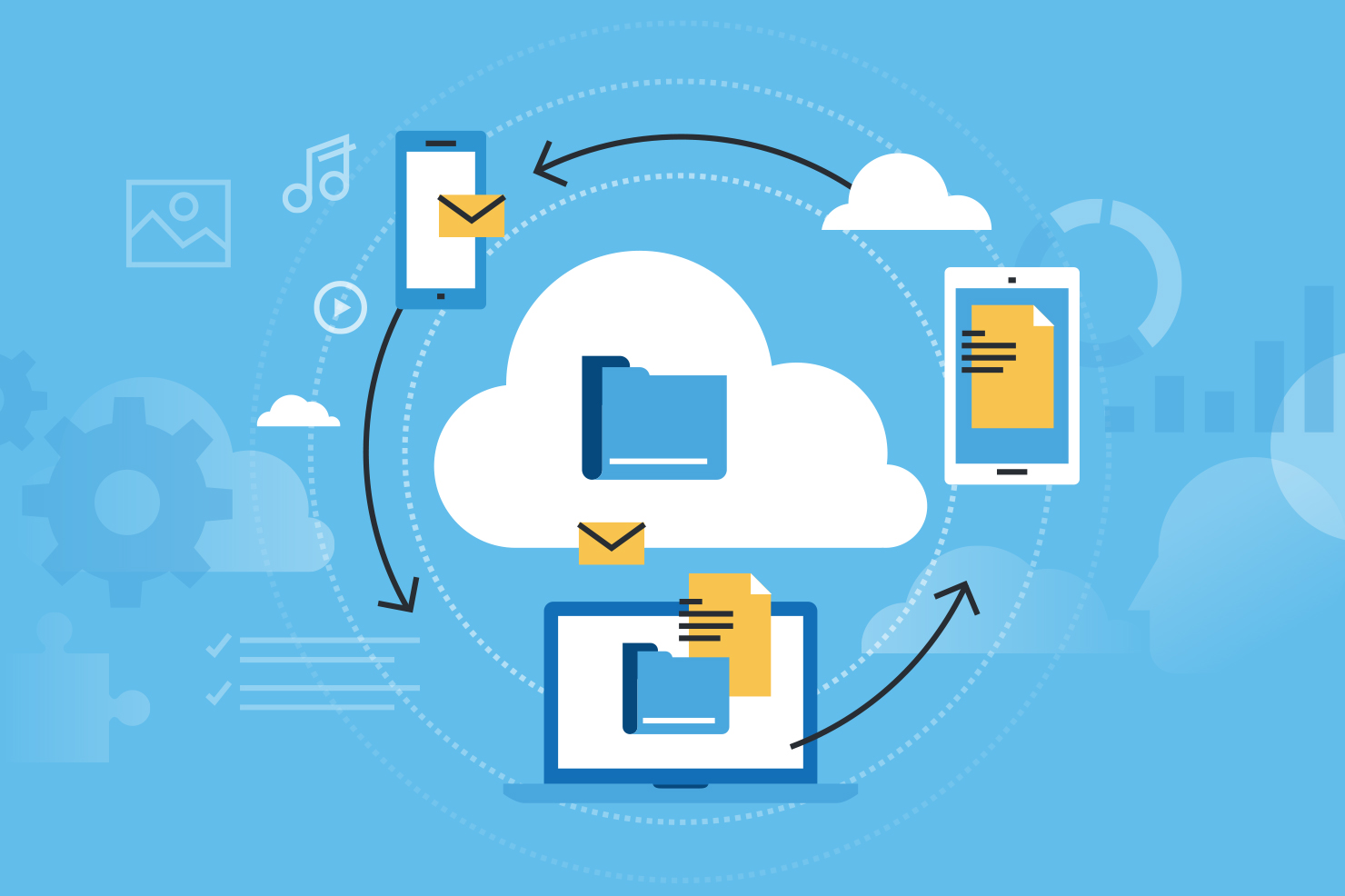When they say that your head is in the clouds, it is probably not a good thing, but when it comes to storing important data, having them in could just be the next thing you did not even know you needed.
Many companies decided to switch to cloud storage since it offers many benefits without too many potential disadvantages in usage.

This article will try to explain what cloud storage is and how it can help and benefit your business and its organization.
What is Cloud Storage?
Cloud storage is a specific type of computer data storage that allows you to store valuable information in an off-site location, usually owned or managed by a hosting company. We call it a “cloud” because it has no specific physical location but is hanging in the vast online space, accessible through the internet or a private network.
Cloud providers provide the storage itself, which are third-party companies that offer their platforms for different types of storage services.
The hosting provider takes care of the data you stored while respecting your privacy, and keeping them safe from any malicious intentions. In other words, when you choose to use cloud storage, you let third-party providers handle your data without interfering with your information or sharing it with any other third party.

Types of Cloud Storage
There are several types of cloud storage. Which one you will choose for usage depends primarily on your needs and the kind of information you are handling.
The public cloud is suitable for a wider audience and usually works on a subscription basis. You can access your information anywhere else in the world by sharing a link or giving permission to access it. Today, some of the most famous public clouds are Google Cloud Storage, Amazon Glacier, Microsoft Azure, and others.
The private cloud is cloud storage not available for everyone. It is hosted internally and protected by a firewall, so not everyone can access it. Businesses require a lot of control over their data and an almost impenetrable security system. Some of the most famous private clouds are Ubuntu, Microsoft, Elastra, and others.
The hybrid cloud is a combination of private and public clouds. It combines the two and offers the best sides of both.
You can also name a different set of cloud storage types based not on the network you are using but on the type of the stored data.
Block storage is the type of cloud storage that organizes data into “blocks.” Every block represents a separate hard drive, and its purpose is to store parts of the larger amount of data. The filing system breaks the data down into blocks, easier to keep but still connected.
File storage stores your data in a file/folder structure, making it tidy, organized, and easy to use.
Object storage mostly manages data as objects, connecting relevant metadata to it, making it easier to access and analyze.
How Does Cloud Storage Work?
Cloud storage is usually bought from a cloud vendor, a third-party owning an operating data storage, allowing you to use all or a part of it. Those data storages are large data centers that have multiple different locations all around the world.
When you try to access the server your data is stored on, using the internet, a private network, your website, or some other way, it forwards your data to the data center (consisting of several servers). From there, it allows you to access your data without a chance of losing them since cloud providers store them in several different machines.
There are several ways in which you can access your cloud storage; for example, you can use desktop cloud storage, web-based management systems, cloud computing service, or web service API (Application programming interface).
Benefits of Using Cloud Storage
There are several ways in which your business can benefit from using cloud storage, and we will try to explain them.
- The Cost – using cloud storage allows you to have more control over your finances because it doesn’t require you to pay any more than you are using. In other words, you will pay only for the storage capacity you use with cloud storage, which means that you don’t have to make capital investments through which you will lose money.
- Fast implementation – switching to cloud storage does not require too much time. It, of course, depend on the involved capacity, but cloud services are generally relatively fast, and you could be accessing your data within just a few hours. It also expands your storage capabilities to store more in less time.
- Off-site management – when you switch to cloud storage, the cloud provider is responsible for the maintenance and protection of the stored data, so it relieves you of that responsibility. It also does not require you to hire people who will manage the data, so it saves you time and money.
- Unlimited capacity – since it has no solid location, could storage allow you to expand your storage capacity as much as needed since all the cloud operator needs to do is create another virtual repository. That makes the storage capacity almost unlimited.
- Ease of accessibility and use – cloud storage can access anyone, anywhere (with appropriate permissions if the repository is private or restricted). It is also relatively easy to use and does not require users or developers to wait for an IT team to provide them with the data they need – they just find and access it themselves.
Disadvantages of Using Cloud Storage
Besides all of the benefits, it is only fair to state some disadvantages of cloud storage you should keep in mind and eventually overcome by implementing different strategies.
- The Cost – becomes a disadvantage if your company frequently needs to move data from on-premises to the cloud and back. This kind of frequent data movement can get costly, so try to avoid it to keep the price at an optimal, desirable level.
- Performance issues – can occur when some of the applications are in-house while other data are in the could. That type of problem can cause performance issues, but it can also be easily solved by moving all servers and applications to the same cloud or moving your data back from the cloud to the in-house.
- Security – is one of the most important issues you can come across. Even tho could providers do their best to protect your data because clouds are so big and are easily movable and available to lots of parties, occasionally, the infrastructure gets virtual threats.
When deciding on whether it is time to switch to cloud storage or not, keep these pieces of information in mind and try to solve your problems before they even occur. Try predicting some of the possible issues and bad outcomes, so if and when they occur, you will be ready to handle them without making your business or clients hold.
